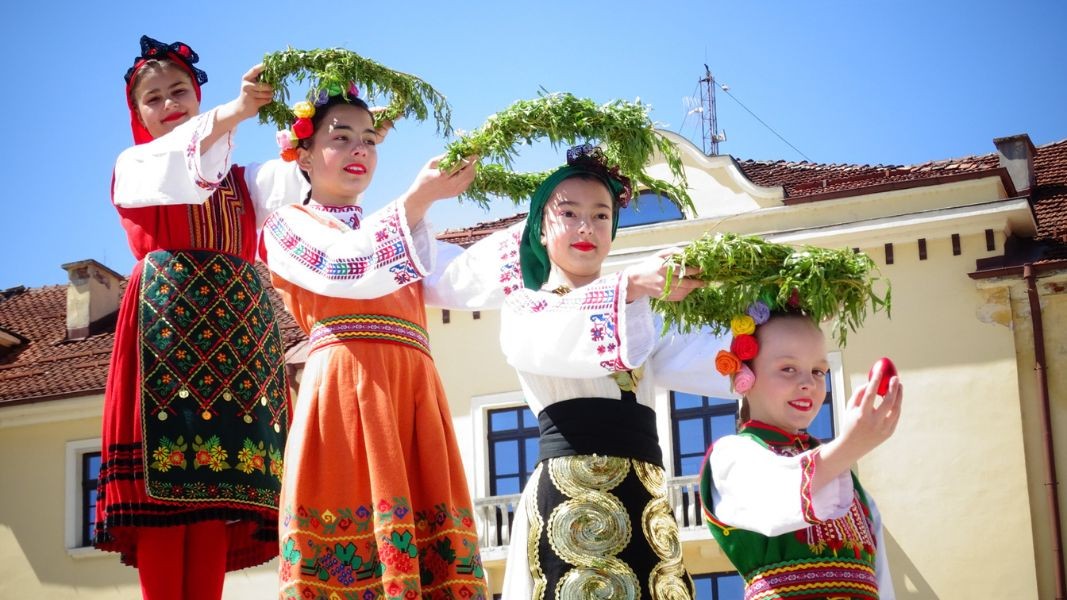Eight days before Easter, we celebrate Lazarus Saturday (St. Lazarus Day). It is the first of the three major Christian feasts associated with the miracle of the Resurrection and is followed by Palm Sunday and Easter. St. Lazarus Day is celebrated each year on a different date, but always on the Saturday preceding the Holy Week. Lazarus Saturday or Lazarovden in Bulgarian bears the name of Lazarus, who was brought back from the dead through the miracle of resurrection and Christ clearly manifested Himself as Lord of Life and Death.
The most typical Bulgarian custom for this day is called ''lazaruvane''. From early morning young unmarried girls called ‘’Lazarki’’ go from home to home, dancing and singing, wishing for love, good health and fertility. In the past there was a belief that a girl who had not participated in the custom would not get married, so it was obligatory for every teenage girl in a village to take part in the rituals. On this day, it was customary for young men to make a marriage proposal to their beloved.

Even today, Lazarus Saturday brings a spring mood and is eagerly awaited by participants, as well as residents and guests of villages and towns.
You can learn more details about the colourful Bulgarian feast in Radio Bulgaria’s publications:
Photos: BGNESProducts made of wool inspire the feeling of inner comfort and warmth in the visitors of the Plovdiv Regional Ethnographic Museum. The exhibition "Bulgarian felts - a message from antiquity" presents an ancient craft, which is..
The Hague, a city in the south of the Netherlands, the administrative centre and the place where the Queen lives and works... Hardly anyone associates this city with Bulgarian folklore and traditions. But the fact is that the interest in..
On June 28 and 29th, the city of Razlog, in the region of Blagoevgrad, will present the magic of Bulgarian folklore. In these days, the XIII Festival of traditional horo dance will be held on the central square "Preobrazhenie". The..

+359 2 9336 661
